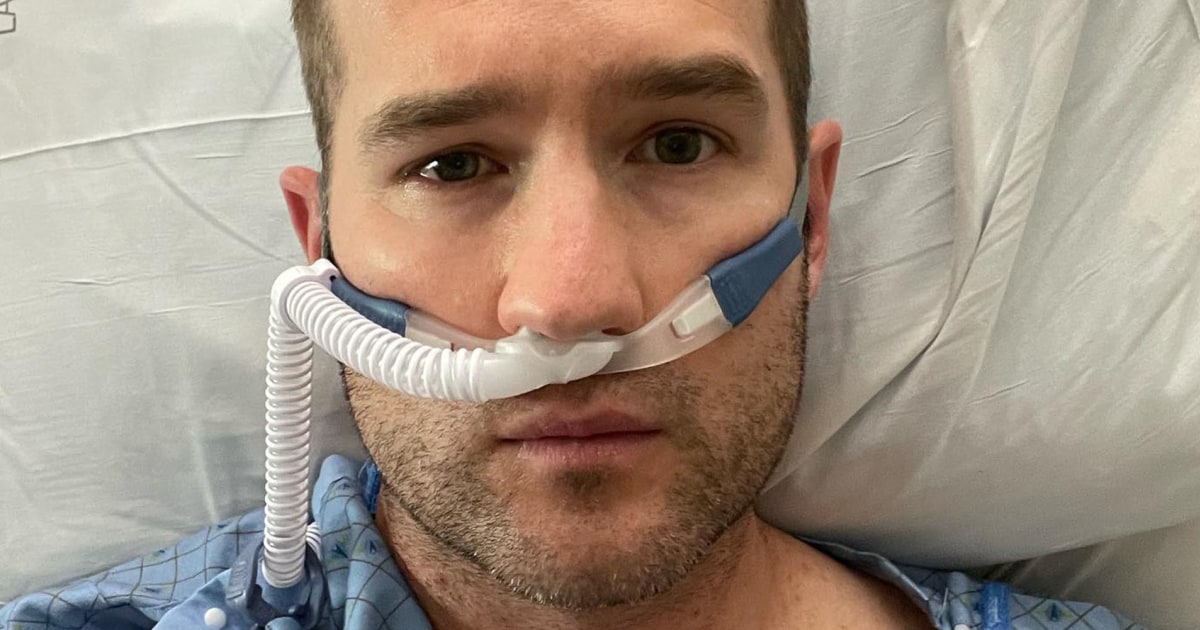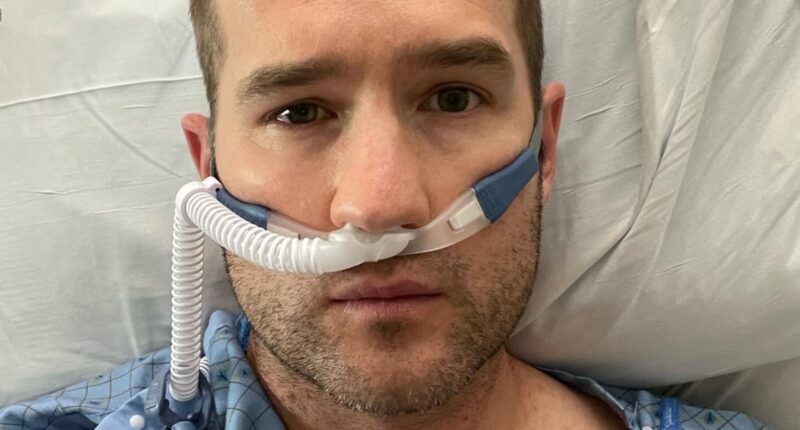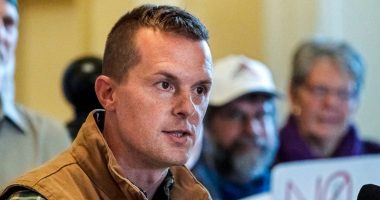
After hiking all of his life, NBC News correspondent Morgan Chesky had never heard of high-altitude pulmonary edema — until an incident he described as “absolutely frightening” could have led to a cardiac arrest.
“I could have never imagined a trip to Bryce Canyon and Zion National Parks would end on oxygen in an ICU,” Chesky said Thursday as he opened up about the ordeal on “TODAY.”
It was the journalist’s first time in an ambulance and the intensive care unit. He had no idea what was wrong, he wrote on Instagram in April when he first shared details of the emergency.
The hiking trip was to celebrate his 37th birthday. On the show, Chesky recalled “feeling off” while walking with his uncle Eric, who in turn noticed his nephew was moving a little slower than he normally did as they began hiking in Bryce Canyon National Park, Utah.
“That’s why I continued to watch you like a hawk for the rest of the trip,” Eric Chesky said.
Hiking in Zion National Park, Utah, the next day, Morgan Chesky felt even worse — lightheaded and weak, with a skyrocketing pulse — and had to stop frequently to catch his breath. The symptoms were especially frightening because his father had similar warning signs before he died of a heart attack at 48.
Sensing he was in trouble, his uncle grabbed his backpack, helped him off the trail and drove him to an urgent care clinic one hour away. Tests showed his blood oxygen saturation levels were at 58% — half of what they should be.
An ambulance took the journalist to Cedar City Hospital in Utah on April 23, where Dr. Jarid Gray found his lungs were filling with fluid and diagnosed him with high-altitude pulmonary edema — a severe form of high-altitude illness, according to the National Library of Medicine.
“The simplest way to think about it is all your capillaries in your lungs started leaking the plasma out into the little space (they’re) occupying, so it’s harder for oxygen to go across,” Gray said.
If untreated, a person can pass out from lack of oxygen or go into cardiac arrest, the doctor noted. Half of patients who don’t get help in time die, the National Library of Medicine noted.
That’s what happened to John Magness, 58, an accomplished hiker who climbed Argentina’s Mount Aconcagua in February. Hours later, he passed away from HAPE-induced cardiac arrest, his family said.
“He was a very physically fit person and never yet never had any of these kinds of struggles on his other climbs,” his daughter Chelsea Shelburne noted.
“I think, truly, it can happen to anyone. Plan ahead and be prepared as best as you can for emergency scenarios.”
Risk factors and symptoms
Doctors don’t know why the illness strikes some people, but not others.
HAPE can occur at altitudes as low as 6,500 feet, with risk factors that include a rapid rate of ascent, using sleep medication, eating too much salt, being in cold weather and engaging in heavy physical exertion, according to the National Library of Medicine. Men seem to be more at risk than women, it added.
Symptoms include fatigue, labored breathing, chest pain and dry cough with exertion.
The main treatment is for the patient to head to a lower altitude with as little exertion as possible until symptoms improve, the National Library of Medicine noted. Supplemental oxygen and certain medicines can also help.
After receiving medical care and returning to a lower elevation, Morgan Chesky has recovered and is grateful to his uncle for making it home.
“Much love for having my back out there,” he told him.
Source: | This article originally belongs to Nbcnews.com










